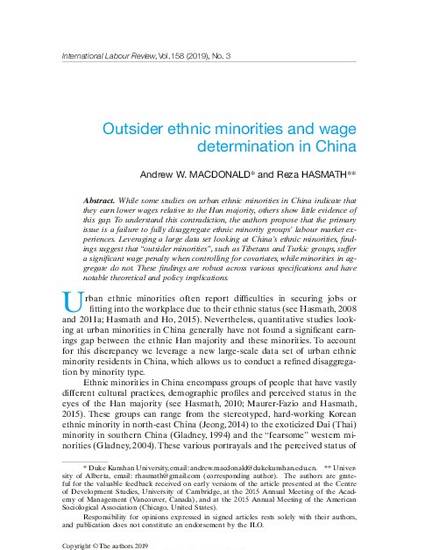
Article
Outsider Ethnic Minorities and Wage Determination in China
International Labour Review
(2019)
Abstract
The literature on ethnic minorities in China has a significant puzzle: in some studies, urban minorities perceive lower wages relative to the majority Han, while in other studies there is little to no evidence of this wage gap. There is not a clear theoretical expectation as to how these findings could simultaneously be true suggesting that new theory-building is necessary. We propose that the primary issue, and a potential solution, is the failure to fully disaggregate ethnic minority groups’ labour market experiences. We leverage a new, large dataset solely looking at ethnic minorities in China to explore this divergence. Our results suggest outsider minorities, e.g. Tibetans and Turkic groups, have a 20-25 percent wage penalty controlling for covariates, while minorities in aggregate do not appear to have a significant wage gap. These findings are robust across several different specifications, and have notable theoretical and policy implications.
Keywords
- Outsider Ethnic Minorities,
- Tibetans,
- Uyghur,
- Kazak,
- Han,
- Wages,
- Jobs,
- Asia,
- China
Disciplines
Publication Date
2019
Citation Information
MacDonald, A. and Hasmath, R. (2019) “Outsider Ethnic Minorities and Wage Determination in China”,
International Labour Review 158(3): 489-508.
